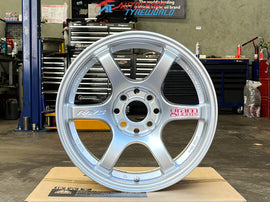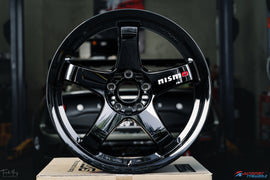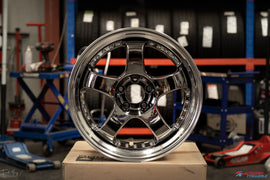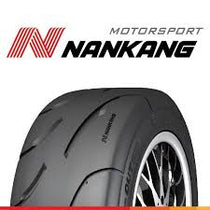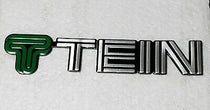Nitrogen in Tyres: What Are the Benefits of Nitrogen-Filled Tyres?
Did you know that it’s possible to inflate your tyres with nitrogen instead of regular air?
It’s a service now offered by many tyre retailers and workshops — and it’s often associated with professional racing or high-performance vehicles.
But what’s the real benefit of using nitrogen in your tyres? Is it something worth considering for your everyday car? Let’s take a closer look.
Tyre Pressure: The Foundation of Tyre Care
At Continental, we design and engineer tyres to deliver many miles of safe, reliable performance. But even the best tyres depend on proper care — and that starts with maintaining the correct tyre pressure.
Your car’s manufacturer specifies the optimal inflation pressure, usually found:
-
In your vehicle handbook,
-
Inside the driver-side door frame, or
-
Under the fuel cap.
We recommend checking tyre pressure at least once every two weeks, and especially before long trips. Keeping tyres at the right pressure ensures stability, grip, and even wear — while preventing blowouts and improving fuel efficiency.
Temperature Changes Affect Tyre Pressure
Tyre pressure naturally fluctuates with changes in temperature. Every 12°C (around 10°F) of temperature difference results in a change of about 1 PSI.
That’s why tyre experts suggest checking pressure early in the morning, before sunlight or driving heat affects your readings.
As the gas inside the tyre warms up, it expands; when it cools, it contracts — meaning your pressure reading will vary depending on temperature.
Where Nitrogen Comes In
So how does nitrogen help?
Air is made up of roughly 78% nitrogen, 21% oxygen, and a small amount of other gases, including water vapour.
When tyres are filled with pure nitrogen, you’re effectively removing most of the oxygen and moisture.
Nitrogen is a dry, inert, non-flammable gas, meaning it doesn’t react with other materials and doesn’t support combustion or oxidation.
Benefits of Nitrogen-Filled Tyres
-
Less pressure fluctuation with temperature changes
-
Reduced moisture content inside the tyre, helping to prevent corrosion on steel or alloy wheels
-
More stable pressure retention over time (air-filled tyres lose pressure slightly faster through permeation)
Because of these characteristics, nitrogen inflation is used in specialised environments such as:
-
Aviation, where precise pressure is crucial at varying altitudes and temperatures
-
Mining and construction, where vehicles operate under heavy loads and extreme heat
-
Motorsport, where even minor pressure differences can influence high-speed handling
Is Nitrogen Inflation Right for You?
For everyday passenger cars, the truth is simple: nitrogen inflation isn’t necessary.
While it’s not harmful, the advantages are minimal for normal driving conditions. Nitrogen won’t prevent air leaks caused by punctures, valve faults, or bead damage — and it doesn’t meaningfully improve fuel economy, rolling resistance, or tyre lifespan compared to regular air.
So, while nitrogen can help keep pressures stable for longer, it’s not a substitute for regular tyre maintenance.
In short:
✅ Safe and stable — yes.
💸 Essential for daily drivers — not really.
The Real Key: Regular Tyre Pressure Checks
Whether you use air or nitrogen, checking your tyre pressure regularly is the single most important step for tyre health and road safety.
Driving with underinflated or overinflated tyres increases the risk of:
-
Heat build-up,
-
Uneven wear,
-
Reduced grip and braking performance, and
-
In severe cases, tyre failure.
If the pressure is below the manufacturer’s recommendation, inflate the tyres back to the proper level — using either air or nitrogen.
For extra peace of mind, consider installing a Tyre Pressure Monitoring System (TPMS), which alerts you when pressure drops significantly.
Key Takeaway
Nitrogen-filled tyres may sound high-tech — and in specific situations, they are.
For racing cars, aircraft, or heavy-duty vehicles, nitrogen provides measurable benefits.
But for most drivers, regular air works perfectly well, as long as you:
-
Check your pressure every two weeks,
-
Top up when needed, and
-
Follow your manufacturer’s recommendations.
Ultimately, good tyre care — not just the gas inside them — keeps you safe, saves you money, and ensures every journey runs smoothly.

